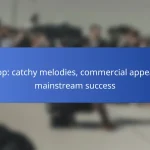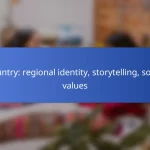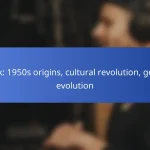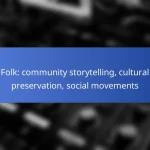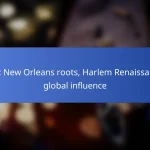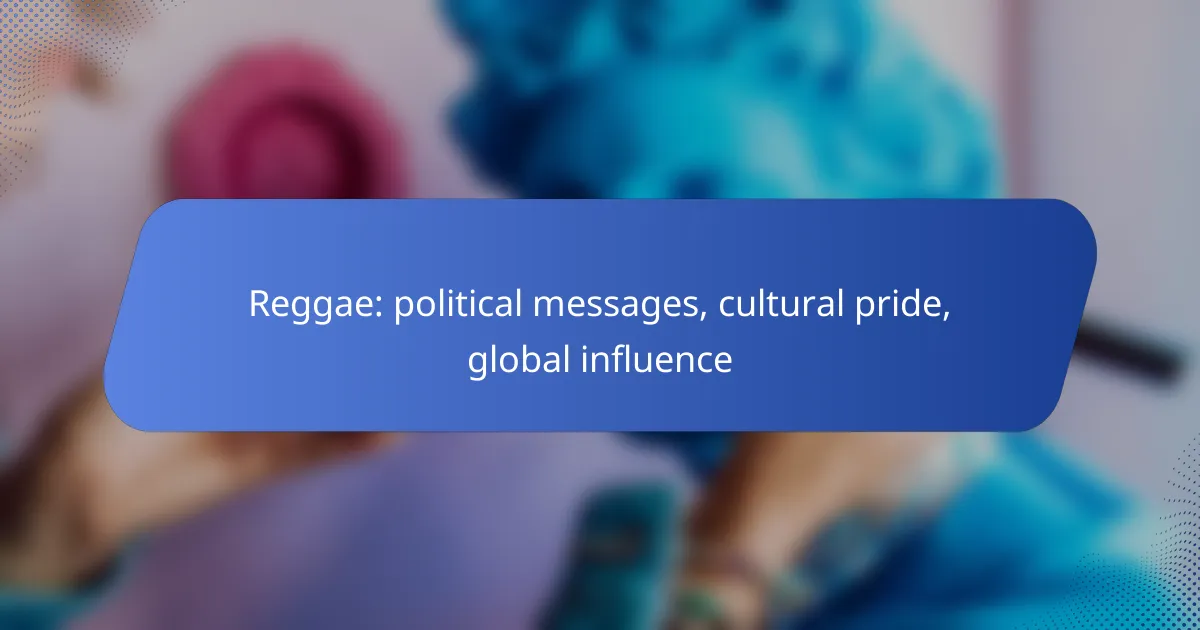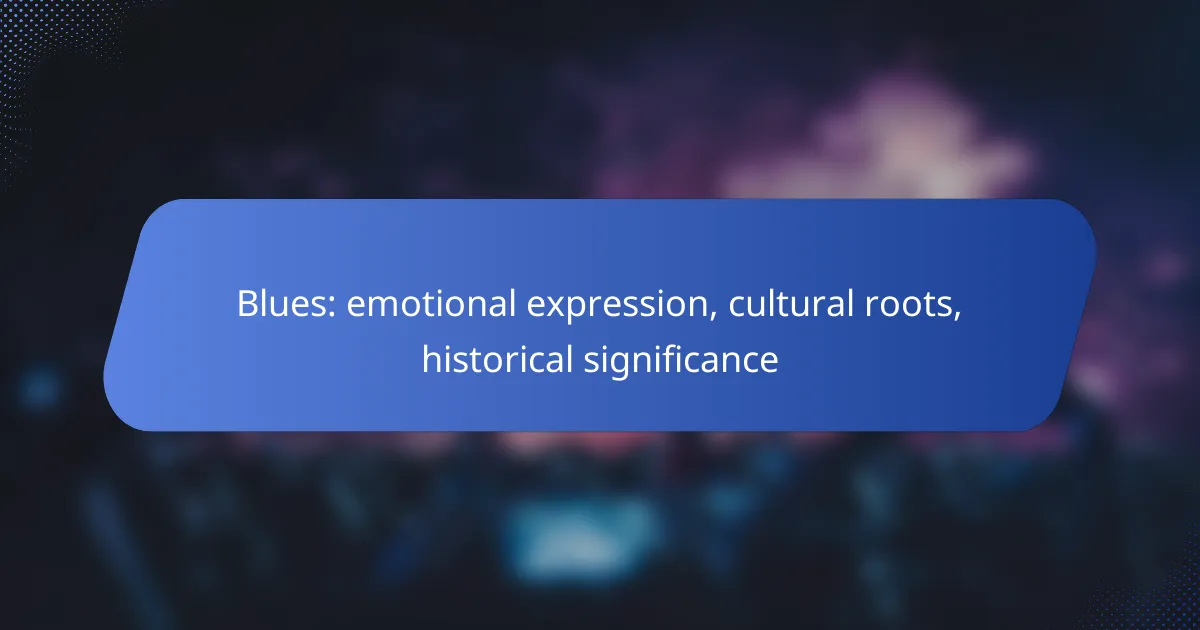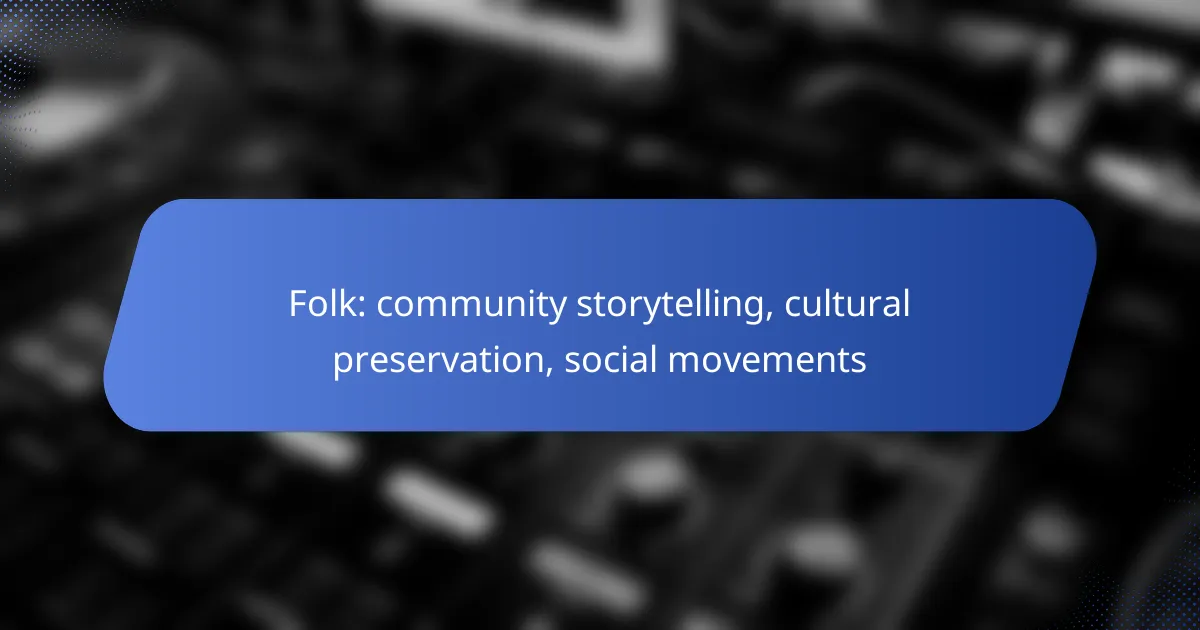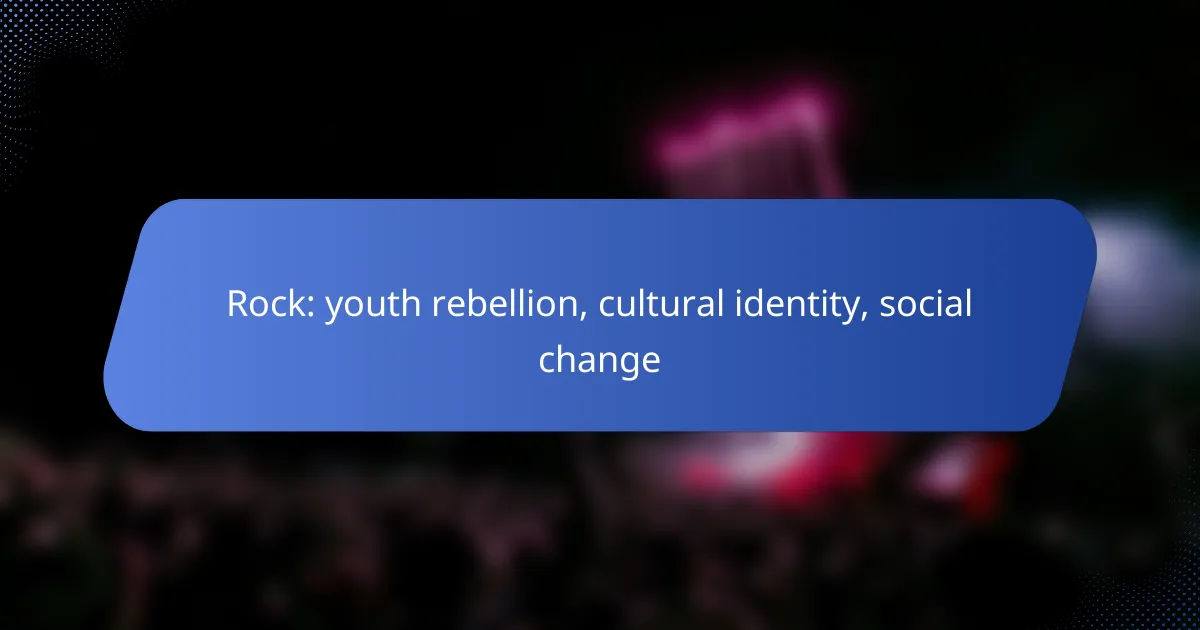Reggae music serves as a potent vehicle for political messages, addressing social injustices and inspiring change through its impactful lyrics and rhythms. It embodies cultural pride, particularly among Jamaicans and the African diaspora, celebrating identity and resilience. Additionally, reggae’s global influence is evident in its distinctive rhythms and themes, which have shaped various musical genres and fostered cross-cultural collaborations.

How does reggae convey political messages?
Reggae conveys political messages through its lyrics, rhythms, and cultural context, often addressing social issues and injustices. Artists use their music to express dissent, promote awareness, and inspire change, making reggae a powerful tool for political expression.
Protest themes in Bob Marley’s music
Bob Marley’s music is rich with protest themes, often focusing on issues like poverty, oppression, and human rights. Songs such as “Get Up, Stand Up” and “Redemption Song” highlight the struggles against systemic injustice and encourage listeners to fight for their rights.
Marley’s lyrics resonate with audiences worldwide, as they reflect universal themes of resistance and hope. His ability to blend personal experiences with broader social commentary makes his music a lasting symbol of protest.
Rastafarian influence on lyrics
The Rastafarian movement significantly influences reggae lyrics, infusing them with spiritual and cultural pride. Themes of repatriation, the sanctity of life, and the critique of materialism are prevalent in many reggae songs, emphasizing a return to African roots.
Rastafarian terminology and symbolism often appear in the music, creating a unique language that speaks to the struggles and aspirations of marginalized communities. This connection to Rastafarian beliefs deepens the political messages embedded in the genre.
Reggae as a voice for social justice
Reggae serves as a vital voice for social justice, advocating for marginalized groups and highlighting issues such as inequality and discrimination. Artists use their platform to raise awareness about local and global injustices, fostering a sense of community and solidarity among listeners.
Through festivals, concerts, and collaborations, reggae musicians often engage in activism, supporting causes that align with their messages. This commitment to social justice not only amplifies their political messages but also inspires action within their communities.
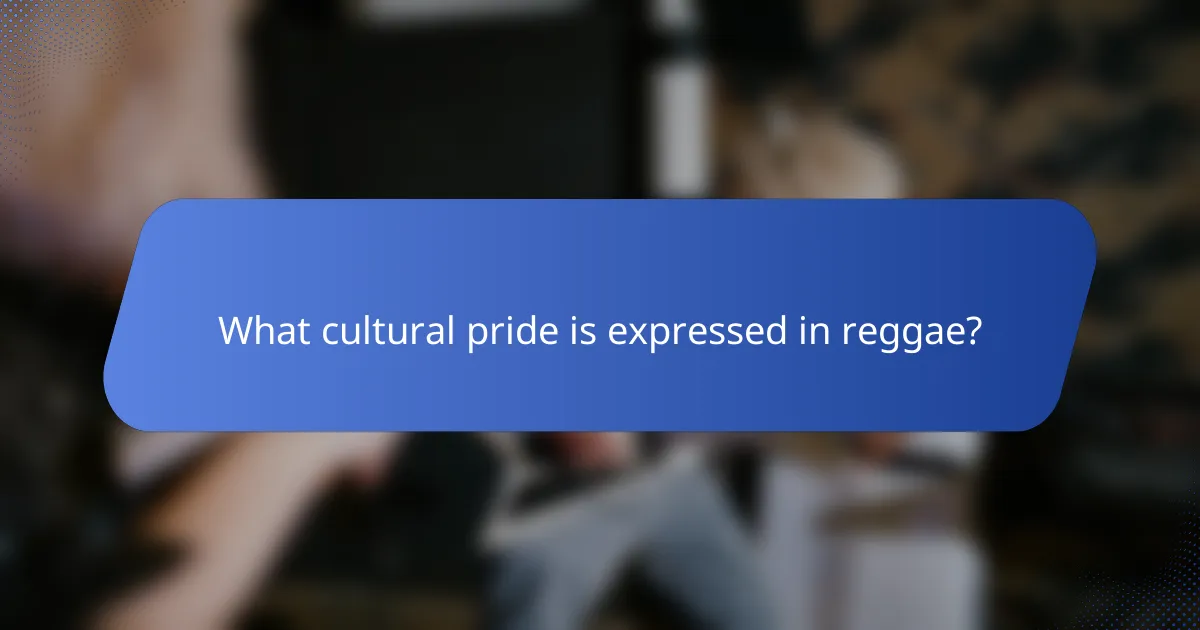
What cultural pride is expressed in reggae?
Reggae music is a powerful medium for expressing cultural pride, particularly among Jamaicans and the African diaspora. It celebrates identity, history, and resilience, often reflecting the struggles and achievements of these communities.
Celebration of Jamaican heritage
Reggae serves as a vibrant celebration of Jamaican heritage, showcasing the island’s rich traditions, language, and social issues. Artists often incorporate elements of patois, folklore, and local customs into their music, reinforcing a sense of belonging and pride among listeners.
Through lyrics and rhythms, reggae artists highlight significant aspects of Jamaican culture, such as Rastafarian beliefs and the importance of community. This cultural expression fosters unity and strengthens the connection to Jamaican roots.
Influence of African roots in reggae
The influence of African roots in reggae is profound, as the genre draws heavily from African musical traditions and rhythms. This connection is evident in the use of polyrhythms and call-and-response patterns, which are staples in both African music and reggae.
Reggae often addresses themes of liberation and social justice, echoing the historical struggles of African peoples. By incorporating these elements, reggae not only honors its African heritage but also serves as a voice for the ongoing fight against oppression.
Reggae festivals promoting cultural identity
Reggae festivals play a crucial role in promoting cultural identity by bringing together diverse audiences to celebrate reggae music and its roots. Events like Reggae Sumfest in Jamaica attract thousands, showcasing local talent and fostering a sense of pride in Jamaican culture.
These festivals often feature workshops, art displays, and discussions on cultural issues, allowing attendees to engage with the music’s deeper meanings. By participating in such events, individuals can strengthen their cultural ties and share their heritage with a global audience.
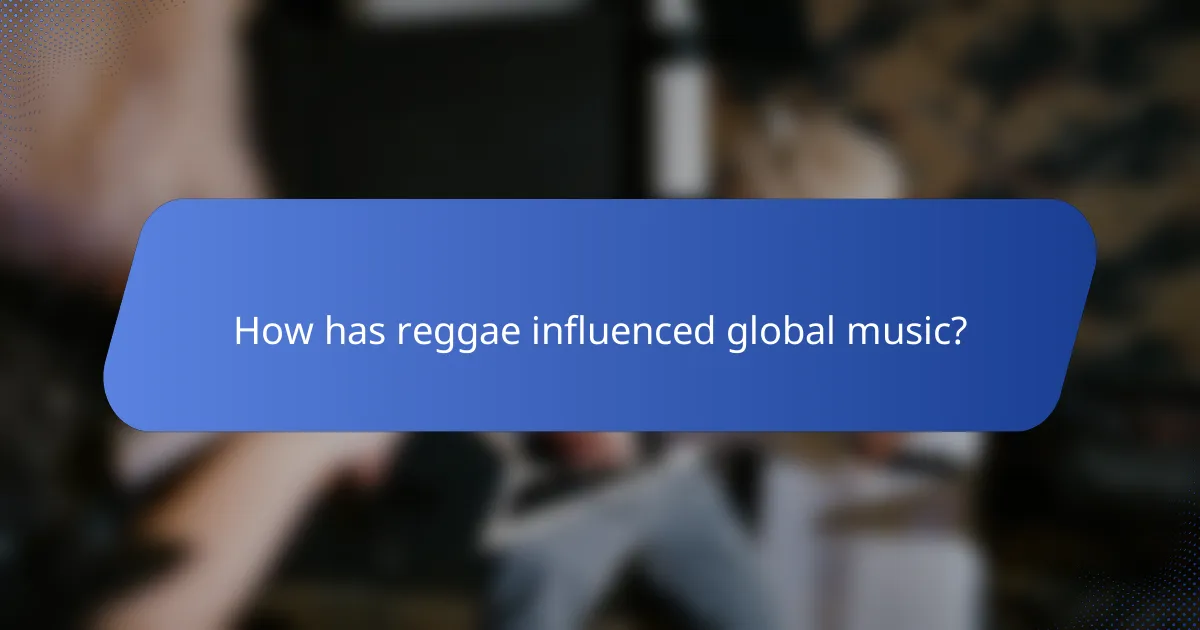
How has reggae influenced global music?
Reggae has significantly influenced global music by introducing its distinctive rhythms, themes, and cultural expressions to various genres worldwide. Its impact can be seen in the evolution of hip-hop, pop, and other musical styles, as well as through collaborations that bridge cultural divides.
Impact on hip-hop and pop genres
Reggae’s influence on hip-hop and pop is evident in the use of its rhythmic patterns and bass lines. Many hip-hop artists incorporate reggae beats into their tracks, creating a fusion that resonates with diverse audiences. For instance, artists like Sean Paul and Shaggy have successfully blended reggae with mainstream pop, leading to chart-topping hits.
The lyrical themes of reggae, often centered on social justice and resilience, have also found their way into hip-hop, enriching the narrative depth of the genre. This cross-pollination has allowed hip-hop to explore new storytelling avenues while maintaining its roots in rhythm and rhyme.
Collaboration with international artists
Reggae has fostered numerous collaborations with international artists, enhancing its global reach. Notable partnerships include those between reggae legends like Bob Marley and artists from various genres, including rock and R&B. These collaborations often result in unique sounds that appeal to a broader audience.
Modern reggae artists continue to collaborate with musicians from different backgrounds, further blending styles and expanding reggae’s influence. For example, collaborations with Latin artists have introduced reggae’s rhythms to new markets, creating a vibrant fusion of sounds.
Reggae’s role in world music festivals
Reggae plays a prominent role in world music festivals, showcasing its cultural significance and global appeal. Events like Reggae Sumfest in Jamaica and the Rototom Sunsplash in Spain attract thousands of fans, highlighting reggae’s enduring popularity. These festivals not only celebrate reggae music but also promote cultural exchange among diverse audiences.
At these festivals, reggae artists often share the stage with musicians from various genres, fostering a spirit of unity and collaboration. This exposure helps to introduce reggae to new listeners, ensuring its continued relevance in the global music landscape.

What are the key reggae festivals in Australia?
Australia hosts several prominent reggae festivals that celebrate the genre’s rich cultural heritage and vibrant community. These events attract local and international artists, providing a platform for reggae music and its political and cultural messages.
Byron Bay Bluesfest
Byron Bay Bluesfest is one of Australia’s most renowned music festivals, featuring a diverse lineup that includes reggae artists. Held annually over the Easter weekend, the festival showcases both established and emerging talents, making it a key event for reggae enthusiasts.
Attendees can enjoy performances from international reggae stars alongside blues, rock, and soul acts. The festival also emphasizes a family-friendly atmosphere with food stalls, art installations, and workshops.
Reggae on the River
Reggae on the River is a unique festival that celebrates reggae music in a picturesque riverside setting. This festival typically occurs in the warmer months and draws a crowd eager to experience live performances from top reggae bands and artists.
In addition to music, the festival promotes environmental awareness and community engagement through various activities and workshops. It’s an excellent opportunity for fans to connect with the reggae culture while enjoying the natural beauty of the location.
Jamaica Day celebrations
Jamaica Day celebrations in Australia offer a vibrant showcase of Jamaican culture, including reggae music, food, and dance. These events are often organized by local Jamaican communities and feature live performances from reggae artists, cultural displays, and traditional cuisine.
Typically held in major cities, Jamaica Day serves as a platform for cultural pride and community bonding, allowing attendees to celebrate their heritage and the global influence of reggae music. Participation in these celebrations can enhance understanding of reggae’s roots and its ongoing impact worldwide.
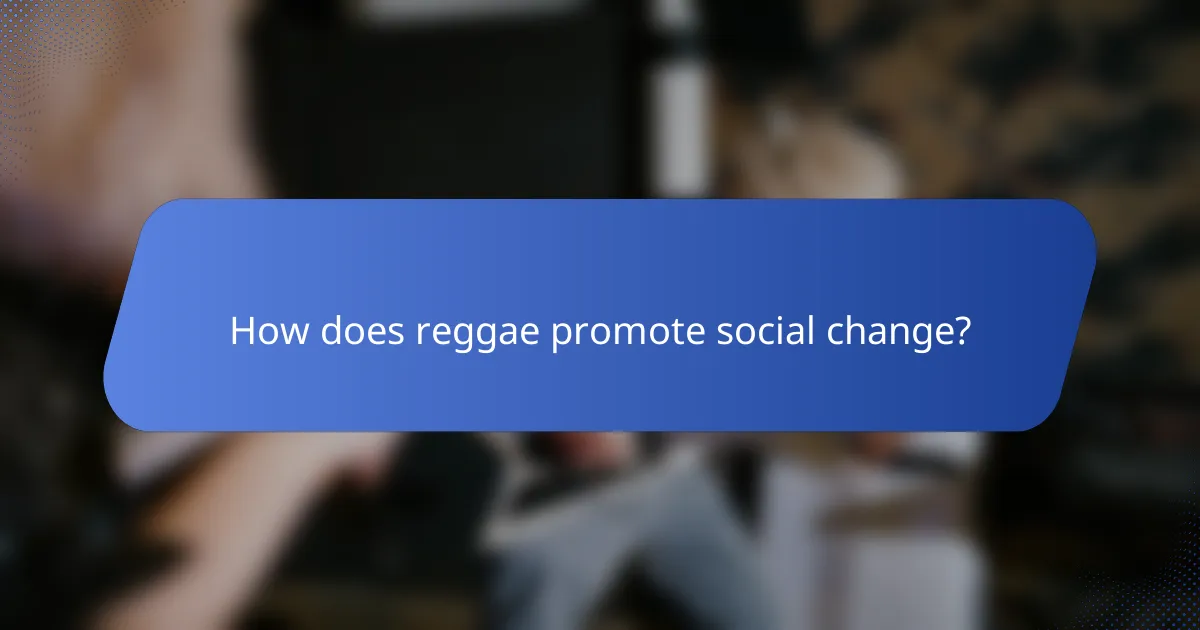
How does reggae promote social change?
Reggae promotes social change by addressing political issues, advocating for equality, and fostering cultural pride. Through its powerful lyrics and community engagement, reggae music inspires listeners to take action and raise awareness about social injustices.
Community initiatives inspired by reggae
Reggae has sparked numerous community initiatives aimed at addressing local issues. For instance, many artists collaborate with grassroots organizations to create programs that focus on youth empowerment, health education, and environmental sustainability.
These initiatives often include workshops, mentorship programs, and cultural events that celebrate reggae’s roots while promoting social responsibility. Such efforts help unite communities and encourage collective action for positive change.
Charity concerts and fundraising events
Charity concerts and fundraising events are common in the reggae scene, leveraging the genre’s popularity to support various causes. Artists frequently perform at benefit concerts, with proceeds directed towards issues like poverty alleviation, education, and disaster relief.
These events not only raise funds but also increase awareness about critical social issues, drawing attention from both local and international audiences. Examples include the annual One Love Peace Concert, which aims to promote unity and support for marginalized communities.
Educational programs using reggae
Educational programs that incorporate reggae music are effective tools for teaching social issues and cultural history. Schools and community centers often use reggae songs to engage students in discussions about topics like civil rights, social justice, and cultural identity.
These programs can include music workshops, lyric analysis, and interactive lessons that connect reggae’s messages to broader educational goals. By using reggae as a teaching medium, educators can foster a deeper understanding of social change and inspire students to become active participants in their communities.
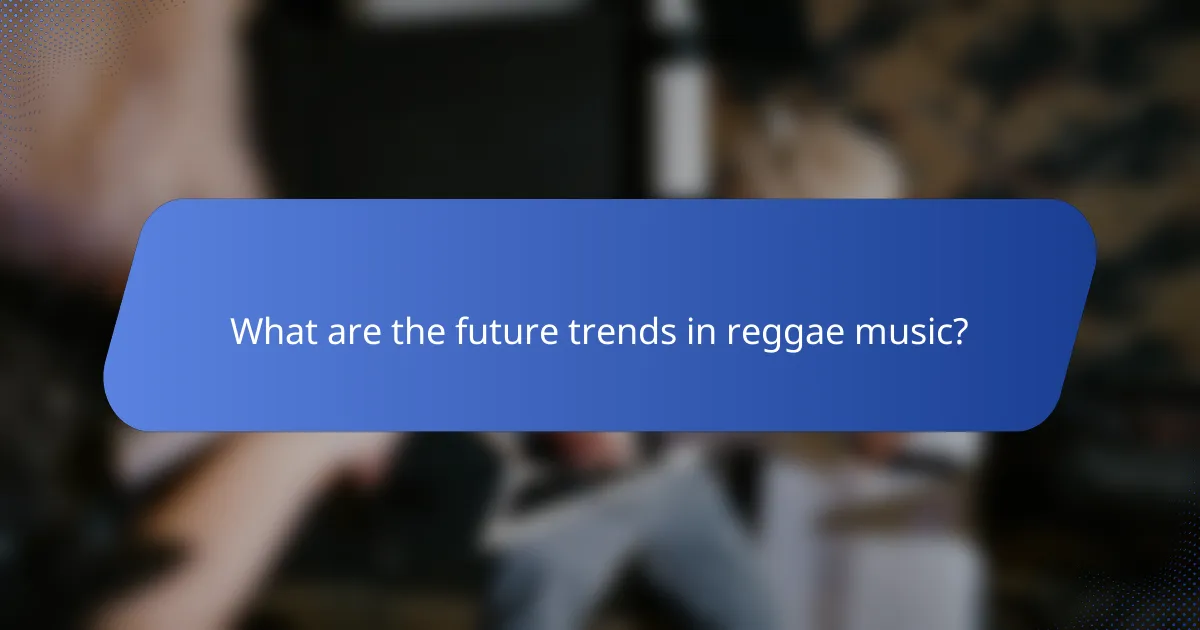
What are the future trends in reggae music?
The future of reggae music is characterized by its fusion with various genres, the rise of new artists, and the increasing globalization of its influences. These trends reflect reggae’s adaptability and its ongoing relevance in the global music landscape.
Fusion with electronic music
Reggae is increasingly blending with electronic music, creating new sub-genres that appeal to younger audiences. This fusion often incorporates elements like synthesizers, drum machines, and digital production techniques, which can enhance the traditional reggae sound.
Artists like Major Lazer and Protoje are examples of this trend, producing tracks that combine reggae rhythms with electronic beats. This cross-genre collaboration not only broadens reggae’s reach but also introduces its cultural messages to diverse listeners.
Emergence of new reggae artists
The reggae scene is witnessing a wave of new artists who are bringing fresh perspectives and sounds. Many of these emerging musicians are influenced by both traditional reggae and contemporary genres, creating innovative music that resonates with a global audience.
Platforms like social media and streaming services have made it easier for these artists to gain visibility. By leveraging these tools, they can connect with fans worldwide and promote their music without relying solely on traditional record labels.
Globalization of reggae influences
Reggae’s influence is spreading globally, with artists from various countries incorporating reggae elements into their music. This globalization allows reggae to evolve while maintaining its core themes of resistance, love, and social justice.
Countries such as Brazil, Japan, and South Africa are producing reggae-inspired music that reflects local issues and cultures. This cross-cultural exchange enriches the genre and helps preserve its relevance in a rapidly changing world.
